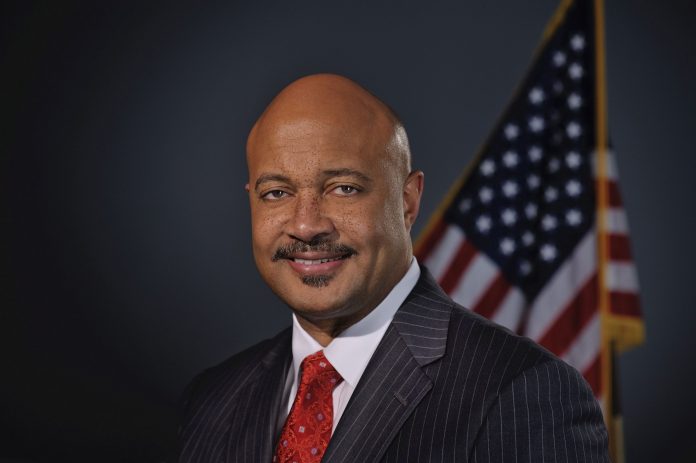| Governor Orders Hoosiers To Stay Home Beginning Today As COVID-19 Cases Rise | ||||||
|
Gov. Eric Holcomb addressed the state Monday to provide an update on the actions Indiana is taking to protect Hoosiers during the coronavirus pandemic, including issuing a “stay-at-home” order. Rest assured, state and local leaders are working together to help slow the spread of COVID-19 and provide critical resources to protect our most vulnerable. The preventative steps we all take now will help Hoosier families and businesses get back to work sooner. |
|
|||||
|
Governor Orders Hoosiers to Stay Home in Fight Against COVID-19
In statewide address, Governor also limits state government services |
||||||
| INDIANAPOLIS (March 23, 2020) – Governor Eric J. Holcomb delivered a statewide address Monday to order that Hoosiers remain in their homes except when they are at work or for permitted activities, such as taking care of others, obtaining necessary supplies, and for health and safety. The order is in effect from March 25 to April 7.
“The next two weeks are critical if we are to slow the spread of COVID-19, and we must slow the spread. You must be part of the solution, not the problem,†said Gov. Holcomb.The first positive case of COVID-19 in Indiana was reported on March 6. Since then the number of positive cases has increased on a near-daily basis, escalating as the capacity to test has grown. As of this morning, the number of tests completed in Indiana is 1,960, the number of positive cases is 259 and 7 deaths have been reported. “I’m setting the example by sending state government personnel home to work to the maximum extent possible and closing our facilities to public interaction beginning Tuesday, for at least the next two weeks,†said Gov. Holcomb. Beginning Tuesday, all state government offices will be closed to in-person public activity until at least April 7. This includes the Government Center complex in Indianapolis and other offices throughout the state, including the Bureau of Motor Vehicle branches. State employees will work remotely whenever possible and continue to provide core functions online and by phone. All public safety functions will continue. In conjunction with the closures, Gov. Holcomb ordered an automatic extension of all state-issued licenses and will advise law enforcement to refrain from issuing citations for a driver’s license or registration that expires during this emergency. The state, in conjunction with the city and all hospital systems in Marion County, has activated a comprehensive emergency operations center to maximize hospital capacity and provide joint coordination. The center is charged with tracking the inventory of all hospital beds, supplies and personnel as the number of COVID-19 patients grow. “I am proud of our hospital systems that are participating in the initial phase of this process, Eskenazi Health, IU Health, Franciscan Health, Community Health Network, and Ascension,†said Gov. Holcomb. “Marion County is where we’ve seen the most community spread to date, but we will expand this model to other parts of the state.†In all, Governor Holcomb Issued Four Executive Orders:
The complete text of Gov. Holcomb’s address may be found here, and the Stay-At-Home Order FAQ may be found here. Indiana opened the Critical Industries Hotline this morning to help guide businesses and industries with the executive order. This center, reachable by calling 877-820-0890 or by emailing covidresponse@iedc.in.gov, is for business and industry questions only. For more information, visit the ISDH website at in.gov/coronavirus and the CDC website at coronavirus.gov. |
||||||
Governor Orders Hoosiers To Stay Home Beginning Today As COVID-19 Cases Rise
Commentary: Governor Grounds The State
Commentary: Governor Grounds The State
By John Krull
TheStatehouseFile.com
INDIANAPOLIS – In the end, Indiana Gov. Eric Holcomb didn’t have much choice.
He had to shut the state down.

That’s why on Monday he signed an executive order closing all non-essential businesses in Indiana. He also directed all Hoosiers to stay home for two weeks unless they’re caring for others or going for groceries or medical supplies.

Holcomb didn’t have many alternatives.
Ever since the first coronavirus case in Indiana was diagnosed on March 6, the growth chart for the spread of the disease has looked like a graphic for a rocket launch. The rate of new cases has been accelerating almost exponentially and Surgeon General Jerome Adams says the coming weeks will be worse – much worse – than what Americans have seen so far.
As Holcomb spoke, the Hoosier state had recorded around 260 cases and seven deaths.
Those totals, though, are deceptive.
Because it still is difficult to impossible for Hoosiers to be tested for coronavirus and the results of the test can take almost a week to be reported, the real numbers doubtless are higher.
Much higher.
And likely to get worse.
Much worse.
That accounted for the urgency of the governor’s short address Monday. He spoke for about 10 minutes and sounded for much of it like a man in a hurry to finish with an unpleasant task.
Holcomb still is not a polished speaker. Every time he steps to a microphone, he resembles a self-conscious high school student dragged to the front of the auditorium to make a few remarks.
But, in this case, that didn’t matter.
The governor’s very stiffness – even awkwardness – compelled attention to his message.
The subtext was clear.
Holcomb wasn’t issuing a sweeping executive order because he wanted to. He was doing it because he had to.
Fair-minded Hoosiers will respect that. They will grasp that the governor wasn’t attempting to exploit an emergency to enhance his authority but instead is trying to keep his fellow citizens from dying in greater numbers than necessary.
That matters.
So did Holcomb’s tone.
It established a marked contrast with that of President Donald Trump during this crisis.
Trump, again and again, has sought to invoke the dark furies – division, discord, seething resentment – that propelled him to power. When it became clear there was no magic wand the president could wave to ward off this danger, he began seeking ways to evade responsibility for it.
He called it a “foreign virus†or “Chinese virus.†He lashed out at a reporter who lobbed him the softest of softballs by asking if the president wanted to speak to Americans who are frightened at this moment. When asked about failures in the federal government’s response to the crisis, the president of the United States – the president of the United States – said he took no responsibility for what his administration does.
For Donald Trump, the buck stops with him only when the news is good.
When the going gets tough, he looks for a desk to hide under.
Thank goodness Holcomb took a different tack.
Instead of speaking to Hoosiers’ darker impulses, he summoned, to use Abraham Lincoln’s wonderous phrase, the better angels of their nature.
He heaped praise on Indiana citizens who are part of the solution, not the problem. He lauded not just healthcare workers – he called them heroes – but others who simply practiced social distance.
And, thus, saved lives.
He also didn’t try to spin things to make himself look good. He just laid out the facts, confident that Hoosiers were wise enough and tough enough to face them.
Holcomb’s message was clear.
The coronavirus is a threat to all of us. For that reason, we all must work together to meet and defeat the virus.
As an exercise in elocution, the governor’s short speech might have merited only a passing grade.
But, as an act of leadership, Eric Holcomb’s performance was first-rate.
FOOTNOTE: John Krull is director of Franklin College’s Pulliam School of Journalism and publisher of TheStatehouseFile.com, a news website powered by Franklin College journalism students.
FDA Will Allow Doctors To Treat Critically ill Coronavirus Patients With Blood From Survivors
FDA Will Allow Doctors To Treat Critically ill Coronavirus Patients With Blood From Survivors
The FDA’s decision comes a day after New York Gov. Andrew Cuomo announced that the state’s health department planned to begin treating the sickest coronavirus patients with antibody-rich plasma extracted from the blood of those who’ve recovered.
The treatment, known as convalescent plasma, dates back centuries and was used during the flu pandemic of 1918, in an era before modern vaccines and antiviral drugs. Some experts have argued that it might be the best hope for combating the coronavirus until more sophisticated therapies can be developed, which could take several months.
“The approach definitely has merit, and what’s remarkable about it is it’s not a new idea; it’s been with us for a good hundred years or longer,” said Dr. Jeffrey Henderson, an associate professor of medicine and molecular microbiology at the Washington University School of Medicine in St. Louis. “I think we don’t know until we have experience and case reports with this particular disease whether it will be effective, but just based on its track record with a number of other viruses, I think it has a very good chance of working.”
Henderson is part of a nationwide network of doctors and researchers, led by a team at Johns Hopkins University in Baltimore, who have been working to establish protocols for use of plasma to treat those suffering from COVID-19, the disease caused by the coronavirus.
Full coverage of the coronavirus outbreak
The method — essentially harvesting virus-fighting antibodies from the blood of previously infected patients — was associated with milder symptoms and shorter hospital stays for some patients during the 2002 SARS outbreak. And initial reports from China suggest convalescent plasma might also be effective in dulling the effects of COVID-19.
Under the emergency protocols approved by the FDA, doctors can request permission to treat critically ill COVID-19 patients on a case-by-case basis. For now, the experimental treatment will be reserved for patients who are in dire condition and at risk of death. The FDA will respond to most requests within four to eight hours, the agency said. For patients who require treatment faster, doctors can call the FDA’s Office of Emergency Operations to get an approval over the phone.
If the treatment is proven safe and effective, experts said it would likely work best if given to patients before symptoms become too severe. And past studies indicate that proactive infusions of convalescent plasma might also be effective in protecting front line health care workers from becoming seriously ill.
“The approach definitely has merit, and what’s remarkable about it is it’s not a new idea; it’s been with us for a good hundred years or longer,” said Dr. Jeffrey Henderson, an associate professor of medicine and molecular microbiology at the Washington University School of Medicine in St. Louis. “I think we don’t know until we have experience and case reports with this particular disease whether it will be effective, but just based on its track record with a number of other viruses, I think it has a very good chance of working.”
Henderson is part of a nationwide network of doctors and researchers, led by a team at Johns Hopkins University in Baltimore, who have been working to establish protocols for use of plasma to treat those suffering from COVID-19, the disease caused by the coronavirus.
Full coverage of the coronavirus outbreak
The method — essentially harvesting virus-fighting antibodies from the blood of previously infected patients — was associated with milder symptoms and shorter hospital stays for some patients during the 2002 SARS outbreak. And initial reports from China suggest convalescent plasma might also be effective in dulling the effects of COVID-19.
Under the emergency protocols approved by the FDA, doctors can request permission to treat critically ill COVID-19 patients on a case-by-case basis. For now, the experimental treatment will be reserved for patients who are in dire condition and at risk of death. The FDA will respond to most requests within four to eight hours, the agency said. For patients who require treatment faster, doctors can call the FDA’s Office of Emergency Operations to get an approval over the phone.
If the treatment is proven safe and effective, experts said it would likely work best if given to patients before symptoms become too severe. And past studies indicate that proactive infusions of convalescent plasma might also be effective in protecting front line health care workers from becoming seriously ill.
The FDA cautioned that plasma has not been proven effective for COVID-19 and that researchers wishing to test it more broadly should apply for permission to begin a trial.
Download the NBC News app for full coverage of the coronavirus outbreak
“Although promising, convalescent plasma has not been shown to be effective in every disease studied,” the FDA announcement said. “It is therefore important to determine through clinical trials, before routinely administering convalescent plasma to patients with COVID-19, that it is safe and effective to do so.”
Experts said widespread use of convalescent plasma if approved in the coming weeks, would require significant coordination between hospitals and the nation’s blood banks.
In New York, health officials said they plan to begin recruiting patients this week who have fully recovered from COVID-19. That effort, officials said, would likely start in New Rochelle, the New York City suburb that was the center of the state’s initial outbreak a few weeks ago, because of the concentration of people there who have already recovered.
“It’s only a trial,” Cuomo said Monday. “It’s a trial for people who are in serious condition, but the New York State Department of Health has been working on this with some of New York’s best health care agencies, and we think it shows promise, and we’re going to be starting that this week.”
Deaconess Clinic Offers Respiratory Immediate Care
Deaconess Clinic Offers Respiratory Immediate Care
Appointments are required, and patients can self-schedule at www.deaconess.com/urgentcare; Respiratory Immediate Care is the second option on the page.
The clinic, located just inside the main entrance of Deaconess Clinic Downtown, is open from 8 AM – 8 PM, 7 days a week, and is for patients ages 4 and up who are experiencing COVID-19 symptoms.
When patients arrive, they’re greeted at the door, given a mask, and then taken directly to an exam room. Deaconess Clinic providers examine the patients and determine what testing may be needed. Some tests, such as for flu or other illnesses, as well as chest x-rays, can take place inside the clinic. If COVID-19 testing is appropriate, a nearby testing option will be available.
The pre-scheduling requirement, and designated location and process, help protect health care workers and patients.
FOOTNOTE: More information about this and other COVID-19 symptom assessment and testing are available at www.deaconess.com/coronavirus.
MESSAGE FROM MAYOR WINNECKE
University of Evansville Reschedules Spring Commencement
University of Evansville Reschedules Spring Commencement
EVANSVILLE, IN (03/24/2020) After much discussion and input from students, faculty, and staff, the University of Evansville is rescheduling its Spring Commencement ceremony to take place during Homecoming weekend on the morning of September 19, 2020, at the Ford Center.
“This semester has taken an unanticipated turn for all of us, and the University of Evansville recognizes the importance of celebrating the educational achievements of our Class of 2020,” said UE president Christopher M. Pietruszkiewicz. “Each one of our students has had a life-changing experience at UE – whether studying at home or abroad, through hours of classroom and out-of-classroom experiences, our students have made lifelong connections. We want to celebrate those moments, in person, at a rescheduled Commencement ceremony.”
This does not affect the timing or award of UE degrees. More details for graduates and graduation attendees will be determined in the upcoming months.
View Online: http://evansville.meritpages.com/news/University-of-Evansville-Reschedules-Spring-Commencement/14886
AG Curtis Hill advises Hoosiers To Exercise Caution When Making Donations
Attorney General Curtis Hill said today that individuals should exercise caution when considering making charitable donations during the ongoing coronavirus (COVID-19) pandemic.
“Hoosiers, by their very nature and values, tend to be a generous people eager to help their neighbors in times of crisis,†Attorney General Hill said. “Unfortunately, unscrupulous scammers attempt to take advantage of such good-heartedness. These con artists aim to trick unsuspecting donors out of their hard-earned money by posing as legitimate charities.â€
To avoid falling victim to deceptive schemes, Attorney General Hill said, Hoosiers should follow these tips:
- Carefully scrutinize requests from organizations seeking donations purporting to be for charity.
- Don’t let names that sound like well-known charities confuse you or trick you into immediate donation. Beware of callers who claim to be endorsed by the state.
- If reached by phone, do not agree to donate money without further research into the organization. Don’t be pressured to make a donation over the phone.
- Research each organization or cause to which you might wish to donate.
- Do not share personal information or financial information in response to unsolicited emails, texts or phone calls.
- Be sure to ask how much of your donation will go directly to the program you want to help.
- If you are making a donation, make it by check or credit card rather than cash.
- Don’t assume solicitations on social media or crowdfunding sites are legitimate — or that hyperlinks are accurate — even in posts shared or liked by your friends. Contact your friends offline and request information about links they share.
- Go to a charity’s verified website and consider donating directly through the website. Legitimate donation websites should begin with “https†rather than just “http.â€
- You can also look up a charity’s report and ratings on these websites:
- Give.org
- GuideStar.org
- CharityWatch.org
- CharityNavigator.org
Go online to report charity scams to the Consumer Protection Division of the Office of the Indiana Attorney General. If you need additional information regarding the Office’s Consumer Protection Division, please call 1-800-382-5516.





